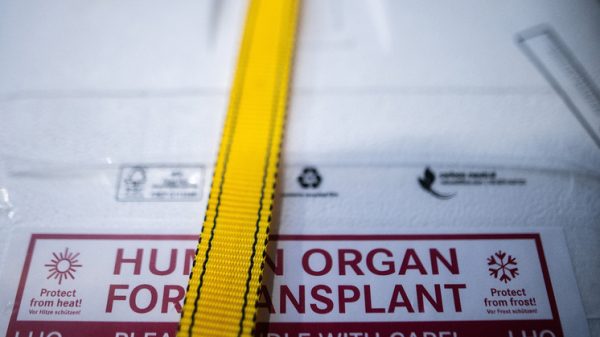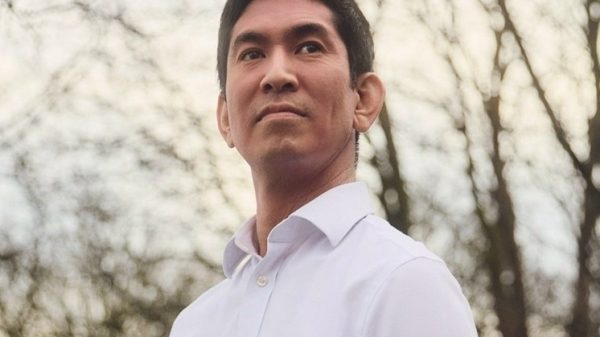
br>
On Friday, the President of the Russian Olympic Committee (ROC) Stanislav Pozdnyakov published a post in his Telegram channel , in which he entered into an absentee dispute with those who, in his words, “still do not see in the current criteria for the admission of neutralized athletes to the Games in Paris the conditions associated with the condemnation of the SVO.” The Sport correspondent once again analyzed what was written in the documents of the International Olympic Committee (IOC).
To begin with, it is worth fixing one very important point. It was best formulated by the outstanding swimmer Alexander Popov in one of his interviews, answering the question whether it is worth going to the Games in a neutral status. “Now, during a special military operation, the guys are not fighting under a neutral flag, but are fighting for the tricolor, for you and me. Why should our athletes be scared to ride under a neutral flag?” — stated the four-time Olympic champion.
This means that, when discussing what this or that criterion set by the IOC for Russian athletes means, we should not forget that these so-called principles of participation in a neutral status are themselves offensive. And morally, a trip to the Olympics can only be justified by the highest philosophy of sport, the mission of every athlete — to compete with the strongest. And return home with a victory.
Yes, now is the time when power in world sports structures is held by forces unfriendly to us. But this is not forever — and the same Stanislav Pozdnyakov has repeatedly stated that he has no doubt: Russia will certainly return to the number of full members of the Olympic movement. In the meantime, every Russian athlete must decide for himself whether he is ready to give up part of his rights to fulfill his mission.
Now — to the wording that has caused controversy regarding its interpretation. We are talking about paragraph 3 of the conditions for admission of Russian and Belarusian athletes in a neutral status to the Olympics in Paris, published on December 8, 2023. Its most accurate translation is: “Athletes who actively support the SBO (wording changed in accordance with legal requirements — editor’s note) will not be allowed to compete. Support personnel who actively support the SBO will not be allowed.”
< br>
“
“In this regard, we can ask the IOC two questions. What exactly in Lausanne’s understanding are indicators of “active support”, is there “passive support” in this case, which does not entail a ban on participation? — Pozdnyakov notes in his publication. — Accordingly, are athletes wishing to take part in the Games in Paris required to declare in writing or in another form their condemnation of the SVO in order to fulfill the criterion of lack of active support? «
< br>I think every journalist covering the topic of international sports politics has already repeatedly asked both of these questions — and not only them — to the IOC press service. The answer is invariably the same: the questioner is referred to the already published admission criteria. Only in the latest letter from the IOC press service did information appear that decisions on the implementation of these criteria will be made at the IOC Executive Committee on March 19-20 in Lausanne.
< br>
If we rely on the information that has already been either published in documents or voiced by the leaders of the IOC, then this is the case. At the moment, as reported in the same decision dated December 8, 2023, each athlete coming to the Olympics, including those who will compete in a neutral status, must sign only one declaration. This is an agreement to the terms of your participation in the Games, and it is published on the IOC website. One of the points reads verbatim: acceptance of the provisions of the Olympic Charter, including the peaceful mission of the Olympic movement.
It seems that these words do not contain any hint of condemnation of the SVO. But there is a nuance. In the same declaration, the last paragraph states: the athlete agrees to comply with any other rules and instructions related to participation in the Games — including their subsequent updates. That is, purely theoretically, the IOC has no obstacles, for example, at the accreditation stage, inviting the athlete to sign the declaration that has been published now, and then adding any other requirements to it.
Perhaps the president of the ROC has information that this is exactly what will happen. This would explain the confidence with which he has already warned athletes several times about the possible, from the point of view of lawyers from the legal department of the ROC, negative consequences of signing documents for participation in the 2024 Games in the form of a violation of Russian legislation. This scenario may also be indicated by the persistent reluctance of the IOC press service to specifically answer the question of the presence or absence of a requirement for neutral athletes to condemn the SVO as a condition for participation in the Games. In Lausanne they really can keep a stone in their bosom.
«
The only thing that can still be said here is that the wording about the non-admission of athletes who actively supported the CBO was also present in the IOC recommendations on the participation of Russians and Belarusians in international tournaments in a neutral status, which was published in March 2023. And there, in a detailed transcript of this document, it was explained that the IOC considers this very “active” support. Firstly, there are contractual obligations with the armed forces or security services. Secondly — “all relevant circumstances, in particular, public statements including on social networks, participation in demonstrations or events in support of the SVO, display of any symbols supporting the SVO, for example, the Z symbol.”
< br>
Signing statements condemning the policies of one’s state, therefore, was not part of the conditions for participating in international tournaments in a neutral status. And it must be said that those international federations that ultimately allowed Russians and Belarusians to compete in a neutral status did not require such declarations. Perhaps there were borderline formulations somewhere, but we can definitely state that not a single Russian athlete traveling to tournaments abroad has ever had problems with the law in their homeland.
However, naturally, it does not follow from this that the Olympics will be a completely different story. We should not forget that the IOC is under enormous pressure from categorically anti-Russian political forces. Some countries have already passed laws prohibiting athletes from competing with Russians in any capacity. What this could lead to at the Games in Paris is obviously scandals. And their IOC clearly wants to be avoided. Therefore, in Lausanne they are trying to play a very complex political game — and, it is possible, with marked cards.






















































Свежие комментарии